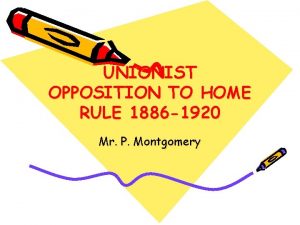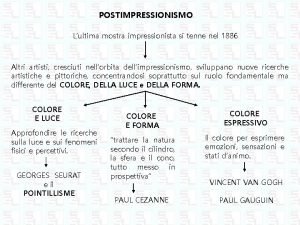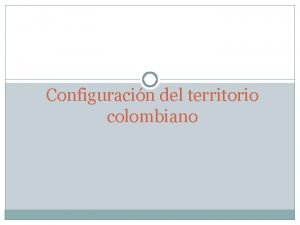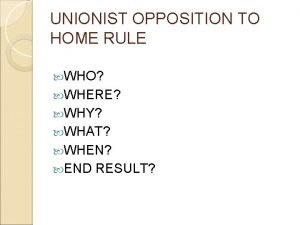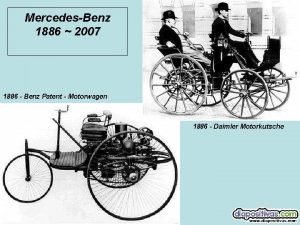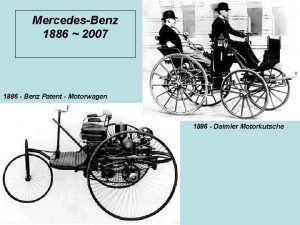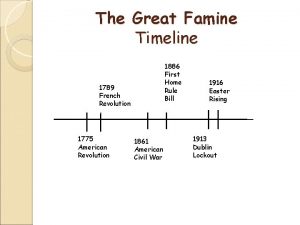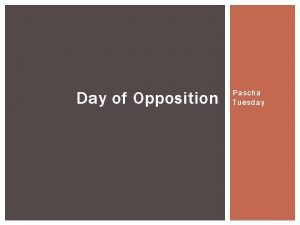UNIONIST OPPOSITION TO HOME RULE 1886 1920 Mr









- Slides: 9

UNIONIST OPPOSITION TO HOME RULE 1886 -1920 Mr. P. Montgomery

Importance of 1886 • Gladstone converted to idea of Home Rule for Ireland • First HR Bill introduced in Commons

Unionist Reaction - mass opposition • political - many Unionists believed that a Nationalist-dominated parliament in Dublin would be a disaster, that home Rule would lead to total chaos and was only the first step on the road to a republic being created • religious - for many the slogan was "Home Rule is Rome Rule" - belief was that the Catholic Church in Ireland had too much power and influence over nationalist politicians • economic - the areas where Unionism was strongest, North east Ulster had a great number of industries that depended on Britain as a source of raw materials and as a vast market because of the size of the British empire overseas

Reaction of British Unionists • Imperialist argument - if one part of the British empire gets some degree of independence - may lead to the eventual breakup of the whole empire • Defense - Home rule may eventually lead to full independence and that could cause problems for Britain in the event of future wars when Ireland could be used by enemies for the invasion of Britain. • Economic - Ireland was an important market for British products • Political - the Irish were simply not capable of running their own affairs • Religious - fellow-Protestants must not be abandoned to be ruled by a catholic-dominated Parliament in Dublin

Main result of 1886 HR Bill • Orange order revived • Unionist Party emerged • support of leading Conservatives and many Liberals • Bill defeated

1893 Second HR Bill • • • Gladstone and Liberals - Back in govt. Bill passed in Commons defeated in Lords Ulster Defense Union created gave Unionists a sense of security Conservatives back in power until 1905

Parliament Act of 1911 • Liberals back in power • needed support of Redmond to pass Parliament Act • deprived Lords of veto • bleak outlook for Unionists • HR now seemed inevitable

Unionist Reaction • mass opposition • Carson and Craig emerge as leaders • also got support of leading Conservatives e. g. Bonar-Law • Ulster Solemn League and Covenant signed 1912 • UVF formed • Larne gunrunning • Curragh mutiny

British Response • • special Conference in July 1914 W. W. I began in August HR put "on hold" until war ended idea of 2 Parliaments in Dublin AND Belfast emerges in 1918 • Government of Ireland Act passed in 1920 • came into effect in May 1921 • Parliament in Belfast opened by King
